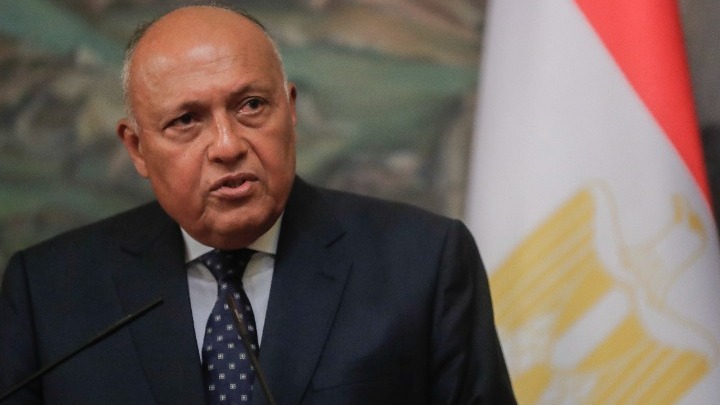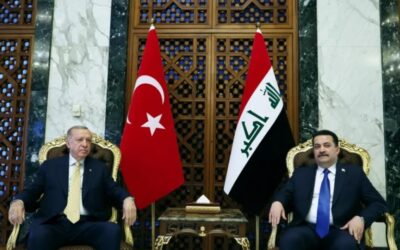In 2023, global military spending set a new record for the ninth consecutive year, according to research by SIPRI, the Stockholm-based…

Egypt’s Foreign Minister, Sameh Shoukry, is visiting Syria and Turkey, two countries with which Cairo has had frosty diplomatic relations for a decade.
This visit “is a message of solidarity from Egypt to these two sister countries after the February 6 earthquake” that killed nearly 46,000 people in Turkey and Syria, the Egyptian Ministry said in a statement. Shoukry’s visit to Damascus will be the first by an Egyptian Foreign Minister since the start of the Syrian civil war in 2011.
In the wake of the devastating earthquakes, Egyptian President, Abdel Fattah al-Sisi, had called his Syrian counterpart, Bashar al-Assad; an unprecedented conversation between the two heads of state.
Sisi then called Turkish President, Recep Tayyip Erdogan, his former arch-rival, with whom he had exchanged his first handshake in November at the World Cup in Qatar. The heads of Egyptian and Syrian diplomacy also spoke on the phone.
Assad has been isolated diplomatically, particularly from the Arab scene – Syria is still suspended from the Cairo-based Arab League – since he began to crack down on a popular uprising that broke out in 2011 and turned into a civil war.
Yet after the earthquake devastated Syria and Turkey, Arab countries resumed contacts and sent aid to Damascus, which could take advantage of the tragedy to break out of its diplomatic isolation, analysts say.
Today Assad received a delegation of heads of Arab parliaments. Among them was Egyptian parliament speaker, Hanafi el-Gabali, described by Egyptian state media as “the highest Egyptian leader to be welcomed to Damascus” in more than a decade.
Relations between Cairo and Damascus have never been completely severed and the top Syrian security official, General Ali Mamluk, even made his first public visit abroad in 2016 since the start of the Syrian war in 2011. However, there’s been a rapprochement with Turkey very recently, as relations between Cairo and Ankara have remained at a low since Sisi came to power in 2013 after the ouster of Islamist President Mohamed Morsi – of whom Ankara was a staunch supporter.
Source: AMNA
Also read: Armenia – Turkey | Earthquake “opens” borders after 35 years
READ MORE
Iraq – Turkey | Sign more than 20 agreements
Turkish President, Recep Tayyip Erdogan, met with his Iraqi counterpart, Abdul Latif Rashid, in Baghdad on the occasion of his official…
Iraq | Εxplosion at military base south of Baghdad
A major explosion at a command post of the Iraqi Army took place today Saturday about 50 kilometers south of Baghdad…
SIPRI | New record in global military spending
In 2023, global military spending set a new record for the ninth consecutive year, according to research by SIPRI, the Stockholm-based…
Iraq – Turkey | Sign more than 20 agreements
Turkish President, Recep Tayyip Erdogan, met with his Iraqi counterpart, Abdul Latif Rashid, in Baghdad on the occasion of his official…
Lambda (λ) Automata | Autonomous surveillance solutions at “Investing in Deep Tech: Dual-Use Technologies” conference
The recent presentation of the start-up company Lambda Automata at the “Investing in Deep Tech: Dual-Use Technologies” conference…
VELOS ROTORS | Velos V3 UAS introduced as ideal example of dual-use systems
The “Investing in Deep Tech: Dual-Use Technologies” conference held at the Hellenic Armed Forces Officers’ Club in…
OCCAR | Additional Night Vision Goggles
The Director of the Organisation for Joint Armament Cooperation (OCCAR), Mr. Joachim Sucker, has signed a third amendment to…
Iraq | Εxplosion at military base south of Baghdad
A major explosion at a command post of the Iraqi Army took place today Saturday about 50 kilometers south of Baghdad…



















